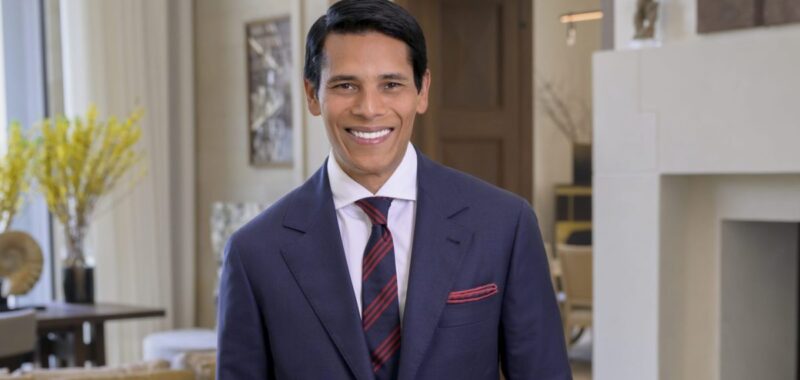It is one of the paradoxes of business that as companies expand and thrive, their success can lead them away from the core principles that originally fueled their growth. To navigate this challenge, leaders must constantly adapt and evolve. Sometimes, this means going back to the future and recommitting to the foundational principles that created their ascent in the first place.
When I returned to Nextdoor as CEO earlier this year, I was invigorated by the same excitement and conviction I felt when my co-founders and I first established the company 14 years ago. This renewed sense of purpose reminded me of how and why we created Nextdoor, which not only anchored my beliefs but also acted as a powerful driver in shaping our future.
Bain Partners Chris Zoom and James Allen explain and expand on this premise in their groundbreaking book The Founder’s Mentality. Their work captures the essence of why the attitudes and behaviors of founders can serve as an ongoing blueprint for helping an initial spark become a forever-horizon company. Beyond the “Shark Tank” moments a founder may leverage to jumpstart their company, the founder’s mentality outlines a roadmap for how companies can build and sustain success. This approach can serve as a powerful competitive advantage for companies of all shapes and sizes, whether in year one or the many years beyond.
A clear and ambitious mission
Unwavering focus is often the key factor that enables founders to out-innovate the establishment. It is the purpose and passion that fuels disruption. A founder’s vision challenges the status quo and addresses unmet needs in the market. That insurgent spirit of wanting to change the world is what propels startups to take risks, experiment, and innovate relentlessly.
Oprah Winfrey is a well-known model of a founder with a clear and ambitious mission. While she is often praised for her generosity, one of her greatest strengths has always been her fierce dedication to her mission. Winfrey’s commitment to empowering and uplifting individuals is a common thread through all of her work, extending well beyond her successful media ventures to a myriad of philanthropic initiatives, including improving education, elevating those in poverty, and fighting against inequality.
Oprah’s mission to make a positive difference in the world by using her platform to foster personal and societal transformation is at the root of all she does—and that has been a consistent push that has never changed.
An obsession with the front line
Founders have a remarkable ability to understand customers’ needs and pain points because these entrepreneurs have envisioned the company as a solution for those very problems. They know how to stay connected to the core of the business, users, and employees—and this connection allows them to quickly understand feedback and constantly improve their products.
Steve Jobs is the most famous example of a founder who was obsessed with the front line. He taught the entire technology industry the power of unyielding customer advocacy, relentless experimentation, and empowering all employees to build insanely great products.
Jobs knew that building a culture of front-line obsession would translate into an environment where innovation and intellectual curiosity flourished and that attracted top talent like moths to a flame. His unmatched understanding of customers and what they value enabled him and his teams to master the oft-overlooked small elements that end up being integral to overall success and excellence.
An owner’s mindset
Founders do not consider themselves employees. They are owners—and they act accordingly. They treat every previous dollar and resource as if it were their last. They work evenings and weekends—and do whatever it takes. They avoid complexity, bureaucracy, and anything that gets in the way of a clean execution of their strategy. And owners hold themselves accountable to performance, the most important commitment of them all.
Sam Walton is a legendary example of a founder who embodied acting like an owner. Famously frugal, with an unmatched work ethic, Walton led by example and embraced the golden rule when it came to his customers and employees. Even as he rapidly grew the number of Wal-Mart and Sam’s Club locations, Walton built a satellite-based television system so that he could personally reach out to every store employee, reminding them to make eye contact and say hello to every customer as he did when he created the first versions of his stores. It is no surprise that he built the largest retail empire in history.
It may be impossible to replicate the genius, drive, and vision of Oprah Winfrey, Steve Jobs, and Sam Walton, but their founder’s mentality is available to all, and not just founders for that matter. Having a clear and ambitious mission, being obsessed with details, and acting like an owner are principles that leverage the secret sauce of company creation to provide actionable guidelines and a steadfast north star on an ongoing basis.
By embracing a founder’s mentality, leaders can foster cultures of innovation and resilience where every team member is inspired to contribute to the company’s growth and long-term legacy. It is how to ensure that original visions continue to thrive, no matter how large or complex the organization, or how challenging or adverse the climate. It is how to create forever-horizon companies that stand the test of time.
More must-read commentary published by Fortune:
The opinions expressed in Fortune.com commentary pieces are solely the views of their authors and do not necessarily reflect the opinions and beliefs of Fortune.
CEO Daily: Stay on top of global business trends with the market-moving stories and analysis business leaders need to know.
Sign up here.

